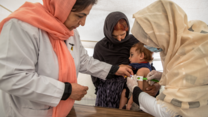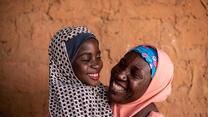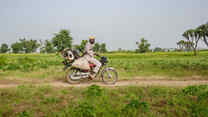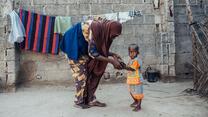2022 has been a turbulent year. Despite the challenges, we'd like to reflect on the moments that have inspired us. Here are nine moments of hope from 2022.
We launched an emergency response to the crisis in Ukraine.
On February 24, 2022, Ukrainians woke up to the sound of explosions sounding in the entire country. More than seven million people were forced to flee Ukraine, making it the fastest-growing refugee crisis in Europe since World War Two. The IRC launched an emergency response in Ukraine, working with local partners in Ukraine and its neighbouring countries, Poland and Moldova.
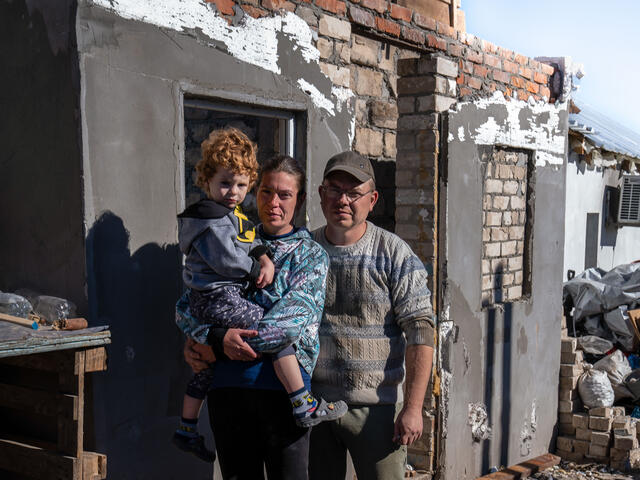
The IRC continues to provide cash assistance to vulnerable families to cover their basic needs. Currently, we are distributing essential winter items and shelter materials for people to keep warm after attacks have destroyed energy infrastructures and homes. We are also improving access to health care and providing tailor-made protection services, including safe spaces for women and children.
Our teams are determined to stay and deliver amidst blackouts and freezing winter temperatures.” - Michael Despines, IRC Ukraine Regional Director
The IRC has also helped to welcome Ukrainian refugees across Europe. In the UK, we are helping newly arrived Ukrainian refugees access their local services and find employment, as well as providing mental health and psychosocial support.
Disney’s new film Encanto celebrated refugees.
The 46 award-winning animation Encanto tells the story of the family Madrigal. In the beautifully animated musical, we see three generations of the displaced family build a life in their new community in Colombia (a country today serving as a haven for people who have had to leave neighbouring Venezuela).

The story of Encanto shares the experience many refugee families go through, including displacement, grief and rebuilding a future. The animation also showcases the contributions that refugees bring to their new communities.
Check out our article about the five ways Disney’s Encanto celebrates refugees.
The England women's team brought it home.
The women's England football team brought football home this summer after they won the Euros in August.

The champion squad are inspiring women and girls up and down the country. Currently, only 44% of secondary schools in England offer girls equal access to football. But since the Lionesses brought the cup home, many grass route female football clubs have seen a steep increase in attendance.
The football association has also set a new target of 120,000 new girls to be playing football regularly.
Dr Najia's all-female mobile health unit reached women in the most rural areas of Afghanistan.
In many of Afghanistan's remote villages, the nearest hospitals are hours away. Some women in the most remote areas have lacked health services for up to 50 years.
Dr Najia heads up an all-female medical team that is determined to change this. They travel through treacherous terrain and long distances to reach the most rural areas of Afghanistan, ensuring the most remote communities have access to critical health care.
“I am proud of them,” Dr Najia says about her team.“They feel that the women and girls in these areas need their help.”
The IRC operates across 12 provinces of Afghanistan. We provide vital health services, education and support for women and girls in communities where we have developed deep relationships with community leaders.
Hear from Dr Najia and her team.
We’ve continued to help refugees navigate life in the UK.
In 2021 the IRC began working with refugees in the South East of England, providing integration support to newly arrived families. This year our work with refugees in the UK has grown even more.
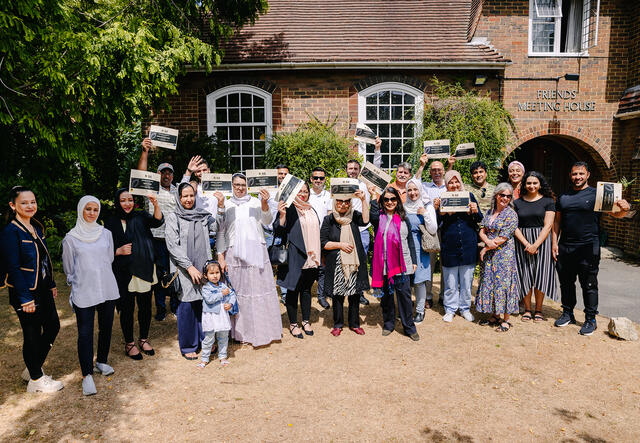
The IRC now runs a number of programmes in the UK to support newly resettled refugees from Syria, Afghanistan and Ukraine. These programmes focus on economic well-being, education, health, power and safety.
We celebrated the diversity of England's football team at the World Cup.
It's usually a summer of football madness, but England played in the World Cup with a very diverse team this winter. 14 out of 26 players have a link to immigration in the UK, and those players scored in total 11 out of the 12 England world cup goals.
The UK is home to people from all backgrounds and cultures, enriching our communities and contributing to our success. As we celebrated England’s football team, we celebrated the differences that make us stronger.
Our UK Aid match campaign raised money for our malnutrition prevention work in Northeast Nigeria.
Fifty million children worldwide suffer from acute malnutrition every year. In northeast Nigeria, drought and conflict have created massive food shortages leaving parents unable to provide nutritious food for their children.
A lack of nutrients causes malnutrition due to a poor diet or problems absorbing nutrients from food. It isn’t just hunger. It’s a life-threatening condition that can rob children of the opportunity to live whole and healthy lives.
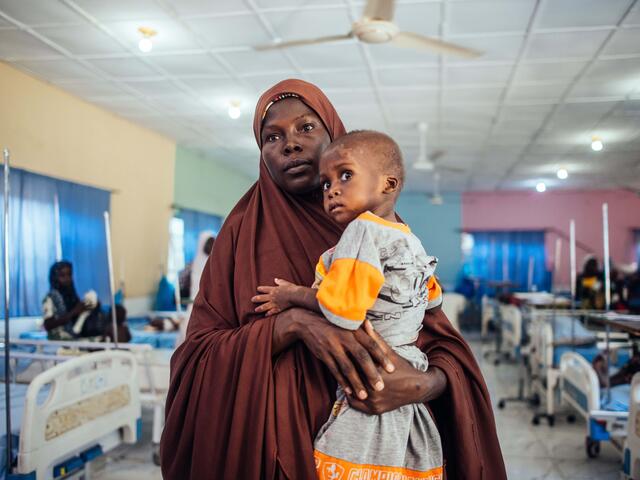
The IRC’s UK Aid match campaign helped fund our malnutrition prevention work in North-East Nigeria. The IRC runs five inpatient stabilisation centres across Northeast Nigeria. Mothers and children who are severely sick are admitted for a week and then onboarded to an outpatient program for another 12 weeks. The centres can hold up to 160 people.
We are also training and educating communities to prevent malnutrition, working closely with parents to ensure children reach their milestones as every child should.
Zahra and her family settled into life in the UK after fleeing Afghanistan.
Single mum Zahra loved her job working as a TV anchor in Afghanistan. But in August 2021, everything changed. Her family had to flee Afghanistan, and they became refugees in the UK.
The IRC supported Zahra and her family this year as they navigated life in the UK. “I was especially excited about the IRC’s leadership course,” Says Zahra. “I want to be a good leader for Afghan women’s rights.”
The 32-year-old single mother wants to continue her dream of being a journalist in the UK. She hopes to use her voice to speak for women's rights worldwide.
Watch her story:
The deportation flight to Rwanda was halted
In April, the UK signed an agreement to deport people seeking asylum in Britain to Rwanda. The first deportation flight was due to leave on the 14th of June, but after a last-minute ruling from the European Court of Human Rights, the Home Office called off the flight.
The scheme has been widely criticised as threatening the welfare of vulnerable people who arrive in the UK hoping to find safety. MPs from all parties, charities and human rights groups have spoken out against the policy. Although meant as a deterrent, there is no evidence to show that policies such as these are effective and they are inhumane. There remains no safe way to seek asylum in the UK.
On December 19th, the High Court ruling deemed the Rwanda plan lawful. However the IRC calls on the UK Government to rethink, uphold its shared global responsibility for refugee protection and establish safe routes for asylum seekers. Read our statement on the ruling here.
